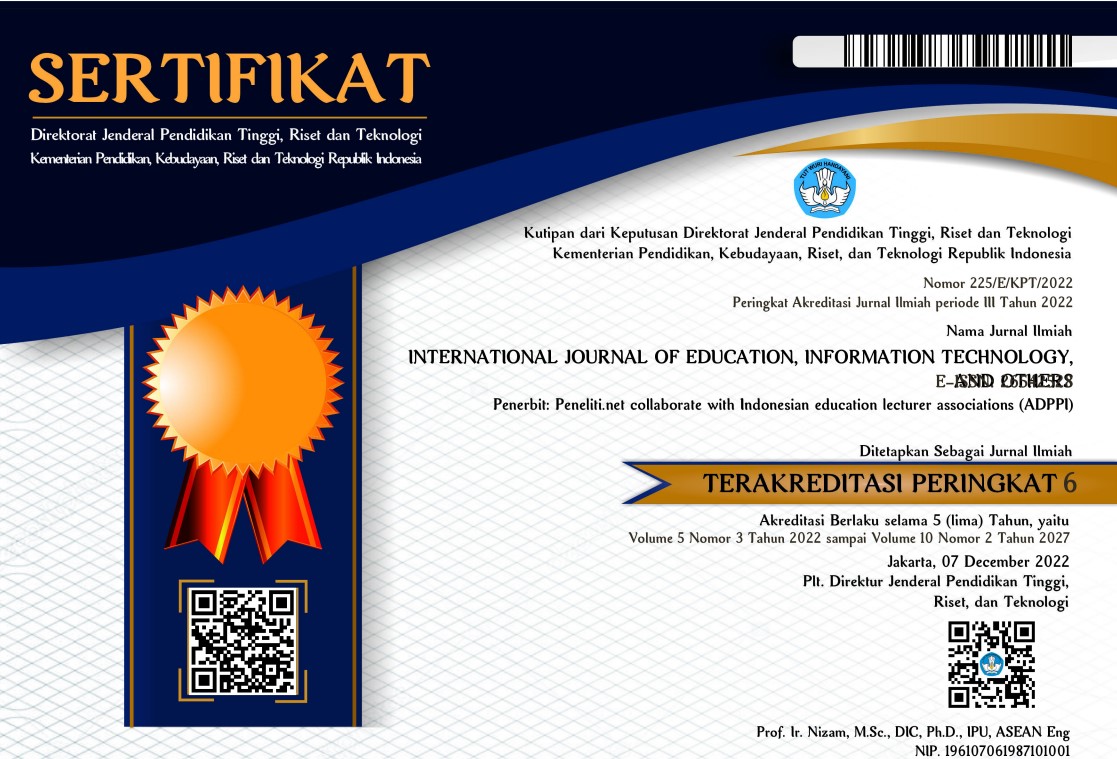THE CHALLENGE OF IMPLEMENTING SMART LEARNING: LEARNING BEHAVIOR READINESS FOR INDONESIAN STUDENTS
Abstract
Rapid technological changes have caused many changes, including in learning. The effects of information and communication technology (ICT) play a role in reshaping education increasingly emerging. ICTs that are integrated into the classroom have shifted from ICT to supporting traditional teaching to be the main factor that shapes re-teaching and learning. ICTs in education, not only enrich forms of teaching and learning, but also radically change the requirements for skills students must possess namely global awareness, communication and collaboration, critical thinking and problem solving, social and cross-cultural skills, and self-direction and interactive. Learning is understood not only understanding knowledge but cognitive skills, interpersonal skills, intrapersonal skills, and consideration. Smart learning is a learning activity that involves changes in the learner's mental system. The effectiveness of learning depends not only on the external environment but also on the suitability of the learning process with the mental features of students. Smart earning defined as self-directed, motivated, adaptive, enriched resources and the use of technology.




